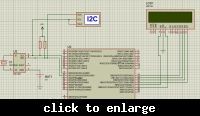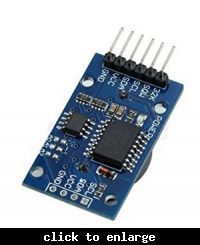djeceymca
Junior Member level 2
Hello Guys,
I am trying to connect DS3231 RTC to my PIC microcontroller 18f46k22. But my code is getting stuck at I2C1_Wr(DS3231_Write_addr) command. Any idea whats the issue.
Regards,
Dev
I am trying to connect DS3231 RTC to my PIC microcontroller 18f46k22. But my code is getting stuck at I2C1_Wr(DS3231_Write_addr) command. Any idea whats the issue.
Code C - [expand]
Regards,
Dev
Last edited by a moderator:

